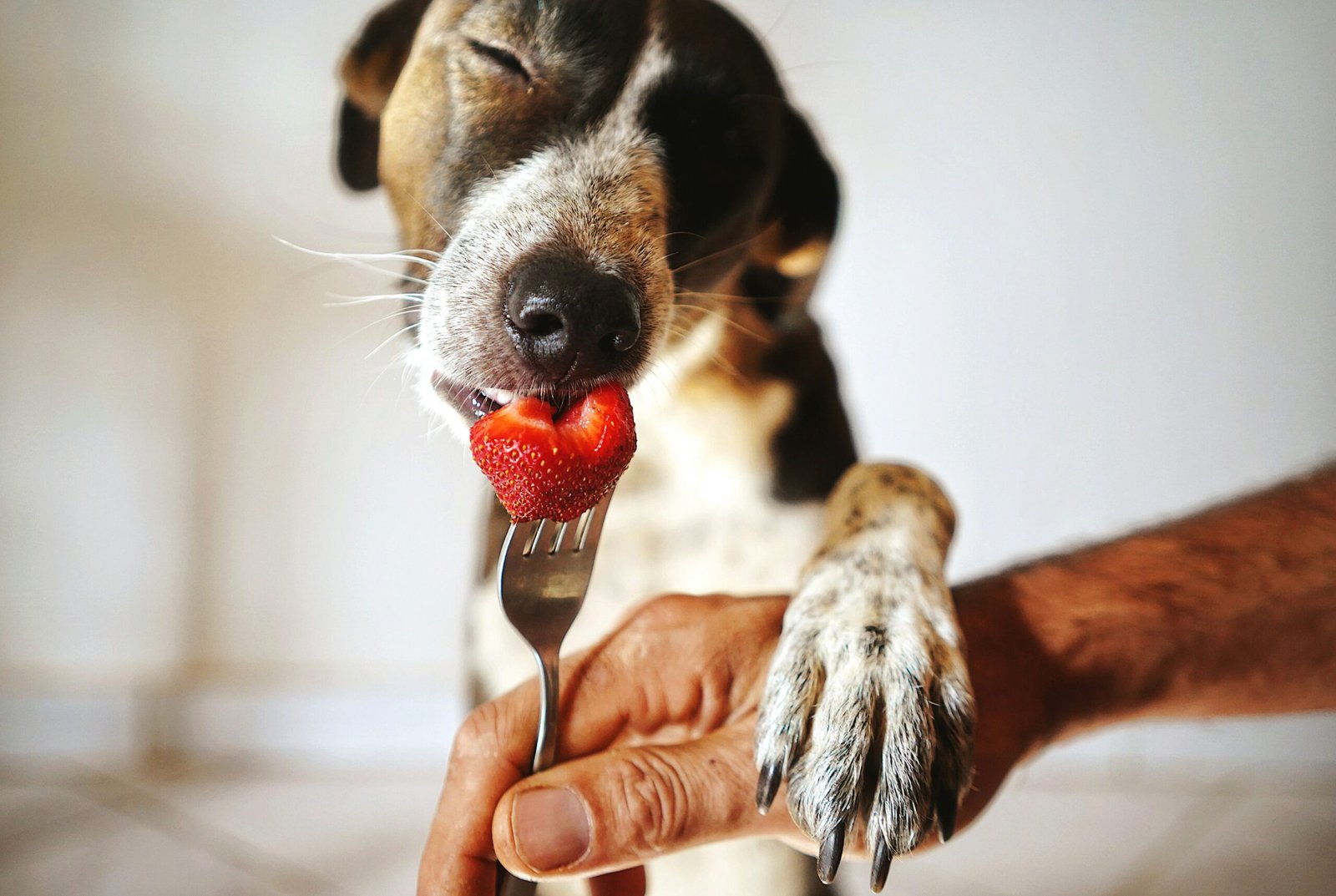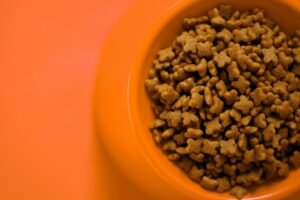Introduction
Finding the best hypoallergenic dog food for senior dogs can make a huge difference in your dog’s comfort and health. As dogs age, they often develop allergies or sensitive stomachs, which can cause itchy skin, digestive upset, or even joint discomfort. Switching to a hypoallergenic diet can help reduce these symptoms while supporting overall wellness, including digestion, skin, and coat health.
In 2025, there are more options than ever — from limited ingredient recipes to novel protein diets like duck, venison, or salmon. Choosing the right food ensures your senior dog stays happy, active, and itch-free.
This guide will walk you through the top hypoallergenic foods for senior dogs, what to look for in ingredients, and how to transition your dog safely — so you can make the best choice for your furry friend.
This post may contain affiliate links. If you buy through these links, I may earn a small commission at no extra cost to you. As an Amazon Associate, I earn from qualifying purchases.
Table of Contents
Why Senior Dogs Need Hypoallergenic Food
As dogs get older, their bodies change — and so do their digestive systems. Many senior dogs develop food sensitivities or allergies, which can show up as itchy skin, ear infections, diarrhea, or gas. Common allergens include beef, chicken, dairy, soy, and grains.
Older dogs also tend to have slower metabolism and weaker digestion, which means regular dog food may not always agree with them. That’s where hypoallergenic dog food for senior dogs comes in. These foods use limited ingredients, novel proteins, and easily digestible carbohydrates to reduce the risk of allergic reactions while providing balanced nutrition.
Switching to the right diet can also help your senior dog feel more comfortable, support healthy joints, and improve overall energy levels. In short, a hypoallergenic diet isn’t just about preventing allergies — it’s about making your dog’s golden years healthier and happier.
Top 10 Hypoallergenic Foods for Senior Dogs (2025 Update)
These foods were selected for their digestibility, limited ingredients, novel proteins, and senior-specific nutrition. Each one helps manage allergies while supporting overall health.
1. Royal Canin Veterinary Diet Hydrolyzed Protein Adult HP
- Specially formulated for dogs with food sensitivities
- Hydrolyzed protein reduces allergic reactions
- Easy-to-digest formula for senior dogs
Best for: Dogs with severe food allergies
Check Royal Canin Hydrolyzed Protein
2. Hill’s Science Diet Sensitive Stomach & Skin Senior Dog Food
- Gentle on digestion, supports skin and coat
- Includes prebiotic fiber for gut health
- Vet-recommended formula
Best for: Older dogs with itchy skin or sensitive stomachs
View Hill’s Science Diet
3. Blue Buffalo Basics Limited Ingredient Senior Dog Food
- Single animal protein source (turkey or fish)
- Grain-free with pumpkin and easily digestible carbs
- Added antioxidants for immune support
Best for: Dogs with mild food sensitivities
Shop Blue Buffalo Basics
4. Natural Balance L.I.D. Limited Ingredient Diets Senior Dog Food
- Novel proteins like duck or venison
- Limited ingredients reduce risk of allergies
- Balanced nutrition for senior dogs
Best for: Dogs needing limited protein variety
Check Natural Balance L.I.D.
5. Canidae PURE Senior Dog Food
- 7–10 key ingredients, grain-free
- Includes probiotics for digestive health
- Supports skin, coat, and joints
Best for: Older dogs with digestive issues or allergies
View Canidae PURE
6. Wellness Simple Limited Ingredient Senior Dog Food
- Turkey or lamb protein with single carbohydrate source
- Grain-free and easily digestible
- No fillers, artificial colors, or preservatives
Best for: Dogs with multiple sensitivities
Shop Wellness Simple
7. Instinct Limited Ingredient Diet Senior Dog Food
- Novel proteins (venison, turkey, or fish)
- Grain-free formula with superfoods
- Supports digestion and overall health
Best for: Active senior dogs with food sensitivities
8. Fromm Gold Holistic Senior Dog Food
- Limited ingredient holistic formula
- Contains probiotics, vitamins, and minerals
- Supports healthy digestion and aging joints
Best for: Dogs needing premium, holistic nutrition
View Fromm Gold
9. Nutro Limited Ingredient Diet Senior Dog Food
- Single animal protein plus simple carbs
- Free from chicken, beef, soy, and dairy
- Helps maintain healthy digestion and weight
Best for: Older dogs with moderate allergies
Shop Nutro LID
10. Royal Canin Hypoallergenic Hydrolyzed Protein Dry Food
Suitable for long-term feeding under veterinary guidance
Best for: Dogs with confirmed food allergies
Check Royal Canin Hypoallergenic
Clinically formulated for severe allergies
Hydrolyzed protein reduces immune response

Key Features to Look For in Hypoallergenic Food
Not all dog foods labeled “hypoallergenic” are truly beneficial for senior dogs with allergies. When choosing the best hypoallergenic dog food for senior dogs, keep an eye out for these key features:
1. Limited Ingredients
Fewer ingredients mean fewer potential allergens. Look for foods that focus on a single protein source (like duck, salmon, or lamb) and simple carbohydrates such as sweet potatoes or rice.
2. Novel Proteins
Some dogs develop sensitivities to common proteins like chicken or beef. Novel proteins — such as venison, rabbit, or fish — can help prevent allergic reactions while providing high-quality nutrition.
3. Grain-Free or Easily Digestible Carbs
Grains aren’t always the problem, but some senior dogs have trouble digesting them. Many hypoallergenic foods use easily digestible grains or grain-free options to reduce gastrointestinal upset.
4. Added Digestive Support
Foods with probiotics, prebiotics, or digestive enzymes help older dogs process nutrients better and maintain gut health. This is especially important for dogs with sensitive stomachs.
5. Omega-3 Fatty Acids
Ingredients like fish oil or flaxseed support healthy skin and coat while reducing inflammation, which can benefit dogs with allergies or arthritis.
6. High-Quality, Balanced Nutrition
Even hypoallergenic foods need to meet the nutritional needs of senior dogs. Look for high-quality proteins, moderate fat, joint-supporting nutrients like glucosamine, and antioxidants to support overall health.
Want to know more about the Top 6 best grain free senior dog foods? read our other article HERE.
Comparison Table
| Brand / Food | Best For | Protein Type | Grain-Free | Key Features | Where to Buy |
|---|---|---|---|---|---|
| Royal Canin Hydrolyzed Protein Adult HP | Severe food allergies | Hydrolyzed soy protein | No | Vet-formulated, gentle digestion | Buy on Amazon |
| Hill’s Science Diet Sensitive Stomach & Skin | Skin issues & upset stomach | Chicken | No | Prebiotic fiber, omega-6 & E | Buy on Amazon |
| Blue Buffalo Basics L.I.D. Senior | Mild allergies | Turkey / Fish | Yes | Antioxidants, pumpkin for digestion | Shop Now |
| Natural Balance L.I.D. Senior | Limited protein tolerance | Duck / Venison | Yes | Simple recipe, balanced for seniors | View Product |
| Canidae PURE Senior | Sensitive digestion | Salmon / Chicken | Yes | 7 ingredients, probiotics, joint support | Buy on Amazon |
| Wellness Simple L.I.D. Senior | Multiple sensitivities | Lamb / Turkey | Yes | Grain-free, no fillers or preservatives | Shop now |
| Instinct Limited Ingredient Senior | Active senior dogs | Venison / Turkey | Yes | Superfoods, omega-3s, probiotics | Instinct limited |
| Fromm Gold Holistic Senior | Premium holistic nutrition | Chicken / Duck | No | Probiotics, joint & heart support | Buy on Amazon |
| Nutro Limited Ingredient Senior | Moderate allergies | Salmon / Lamb | Yes | No chicken, soy, or dairy | Nutro limited |
| Royal Canin Hypoallergenic Dry Food | Confirmed allergies (vet use) | Hydrolyzed protein | No | Clinically tested, immune support | Check royal canin |
Check the article about the best hypoallergenic dog treats HERE.

How to Transition Your Dog Safely
Switching to the best hypoallergenic dog food for senior dogs shouldn’t happen overnight. Senior dogs have more sensitive stomachs, and a sudden change can cause gas, diarrhea, or loss of appetite.
To make the switch smooth and safe, follow this simple 7-day transition plan:
| Day | Old Food | New Hypoallergenic Food |
|---|---|---|
| Days 1–2 | 75% | 25% |
| Days 3–4 | 50% | 50% |
| Days 5–6 | 25% | 75% |
| Day 7+ | 0% | 100% |
During the transition:
- Watch for signs like itching, licking, loose stools, or gas — these can signal food sensitivities.
- Always introduce new foods gradually and monitor your dog’s energy levels and appetite.
- If your senior dog shows signs of discomfort, slow down the switch or consult your vet.
This gradual approach gives your dog’s digestive system time to adjust and helps you confirm if the new food is truly making a positive difference.
Want to know how to read Dog Food Labels? Check in our other article HERE.
Additional Tips for Senior Dogs with Allergies
Feeding the best hypoallergenic dog food for senior dogs is only part of the solution. Allergies can come from more than just food — environment, grooming products, or even seasonal pollen can also cause skin and stomach problems.
Here are some extra ways to keep your senior dog comfortable and allergy-free:
1. Add Supportive Supplements
Senior dogs often benefit from omega-3 fatty acids, probiotics, and joint supplements.
- Omega-3s (from fish oil) help calm skin irritation and reduce inflammation.
- Probiotics support digestion and strengthen the immune system.
- Joint supplements with glucosamine and chondroitin can ease stiffness from arthritis.
2. Keep Up With Regular Grooming
A clean coat and skin help prevent allergic reactions. Use hypoallergenic shampoos and keep your dog’s bedding clean and dry.
3. Monitor Environmental Triggers
Dust, pollen, and even certain cleaning products can worsen allergies. Try using air purifiers and keep your home free from heavy scents or chemicals.
4. Maintain Proper Hydration and Weight
Older dogs are less active, so make sure portion sizes match their energy needs. Hydration also helps the kidneys and digestive system work efficiently.
5. Regular Vet Checkups
Allergy symptoms can sometimes mask other issues, like thyroid problems or infections. A vet can help rule those out and recommend the right diet or medication if needed.
Want a trusted brand for natural, vet-approved supplements?
Check out Innovet Pets for high-quality CBD, omega, and joint support products formulated specifically for senior dogs.
Or explore Amazon’s Best-Selling Dog Supplies for budget-friendly options and verified reviews.
FAQ: Best Hypoallergenic Dog Food for Senior Dogs
1. What makes dog food “hypoallergenic”?
Hypoallergenic dog food uses limited ingredients and novel proteins (like duck, salmon, or venison) that your dog’s body doesn’t easily react to. These foods avoid common allergens like chicken, beef, wheat, and soy.
2. What are the signs my senior dog might have food allergies?
Common signs include itchy skin, paw licking, ear infections, gas, or loose stools. Some dogs also lose interest in food or show low energy.
3. Can I feed homemade hypoallergenic food to my senior dog?
Yes, but it’s tricky. Homemade diets must be balanced with vitamins and minerals. Always ask your vet before switching — most senior dogs do best with vet-tested commercial hypoallergenic diets for proper nutrition.
4. Is grain-free food always hypoallergenic?
Not necessarily. Some dogs react to certain proteins instead of grains. If your vet recommends it, try a limited-ingredient diet rather than focusing only on grain-free options.
5. How long does it take to see results after switching foods?
Most dogs start showing improvements in 4–6 weeks, especially with less itching and better digestion. Be patient — the body needs time to clear out old allergens.
6. Can supplements help with allergies in senior dogs?
Yes! Omega-3 fatty acids, CBD oil, and probiotics can all support skin, digestion, and immune health.
Explore trusted options at Innovet Pets or find top-rated supplements on Amazon.

Final Thoughts
Finding the best hypoallergenic dog food for senior dogs can make a huge difference in your dog’s comfort, digestion, and overall health. As dogs age, allergies and sensitive stomachs become more common, and choosing a diet that addresses these issues can reduce itching, improve energy, and support joints and immune health.
Remember, it’s not just about switching food — gradual transitions, monitoring for reactions, and maintaining a healthy routine are equally important. With the right diet and care, your senior dog can enjoy happier, healthier golden years.
Start by identifying your dog’s specific needs, look for limited ingredients and novel proteins, and always introduce new foods slowly. By taking these steps, you can give your furry companion the comfort and support they deserve.
Want to know more about the best food for senior dogs? Check our other article HERE.
Sources
- PetMD – Hypoallergenic Dog Food: Everything You Need to Know
- American Kennel Club – Best Dog Foods for Allergies and Sensitive Stomachs
- Hill’s Pet Nutrition – Sensitive Stomach & Skin Diets
- Blue Buffalo – Limited Ingredient Diet (L.I.D.)
- Natural Balance – L.I.D. Formula for Dogs
- Canidae – PURE Limited Ingredient Dog Food
- Wellness – Simple Limited Ingredient Diet
- Instinct – Limited Ingredient Diet Dog Food
- Nutro – Limited Ingredient Diet
- Royal Canin – Veterinary Diet Hydrolyzed Protein
- Cornell University Vet School – Canine Nutrition & Allergies




Pingback: Best Food For Senior Dogs: What Really Works In 2025